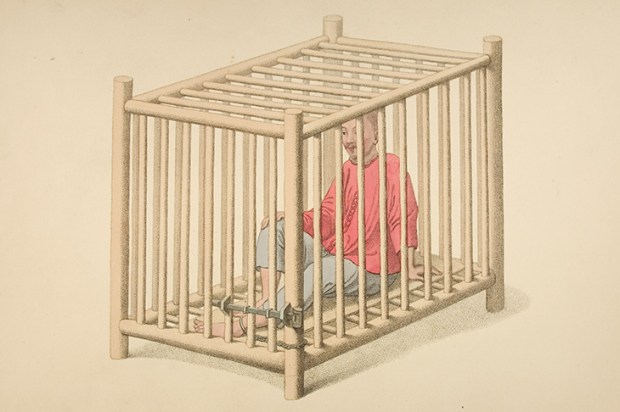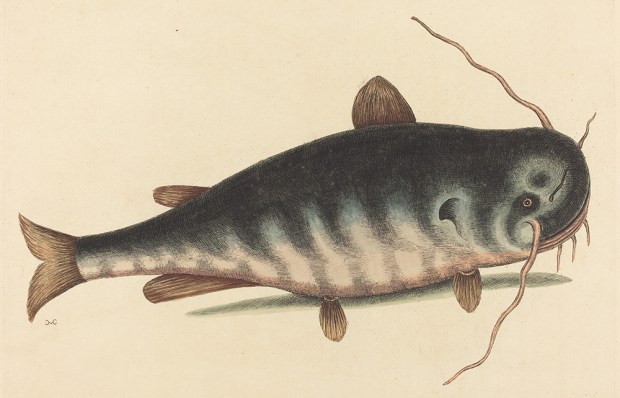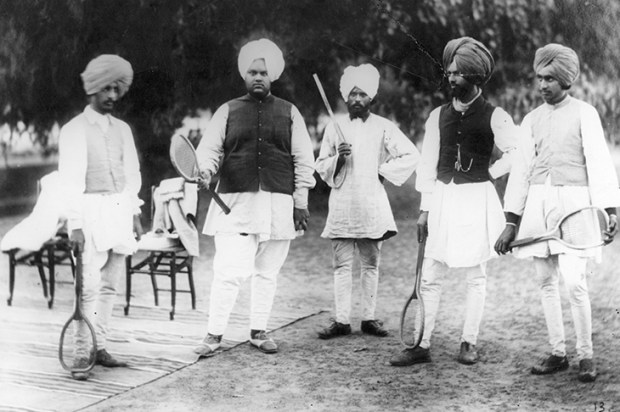As Joe Biden rushed (sorry, stumbled) out of the doors of the White House, he flung around things called ‘pre-emptive pardons’ like confetti. And that poses an interesting linguistic problem. The word ‘pardon’ appears in English from about 1300 onwards. It came into English from French – and it is still used in French today to apologise, in exactly the same way we say ‘I beg your pardon’ if we bump into someone. But in English at least ‘pardon’ also became a legal word. From around 1425 the word ‘pardon’ was used to mean: ‘A formal remission, either free or conditional, of the legal consequences of a crime; an action on the part of the proper authority in a state, releasing an individual from the punishment imposed by sentence or that is due according to law’ (Oxford English Dictionary). I’m no lawyer, but as a wordsmith I think anything called a ‘pre-emptive pardon’ is an abuse of the English language. ‘Pardon’ means the forgiving of a criminal offence – and without a conviction there can be no criminal offence. It is clearly possible to pardon a convicted person – but how can the word ‘pardon’ have any meaning in the absence of a conviction? The big American dictionary, the Merriam-Webster, agrees, saying that ‘pardon’ as a verb, may be defined as ‘to absolve from the consequences of a fault or the punishment of crime’; and as a noun it has legal uses such as ‘a release from the legal penalties of an offense’ and ‘an official warrant of remission of penalty as an act of clemency’. In other words, no conviction, no pardon. So, will Joe Biden’s so-called ‘pre-emptive pardons’ be challenged in court? I wouldn’t be the least bit surprised.
Speccie reader Dennis writes to say that the Victorian economy has been called a ‘basket case’ and wants to know where this phrase came from. Well, Dennis, the source is rather grisly. ‘Basket case’ is recorded in America from about 1918. Apparently there were widespread stories that first world war soldiers who had lost all four limbs were place in baskets, instead of on stretchers. There seems to be no truth to these stories, but they spread like wildfire at the time. The Oxford notes, ‘It was extremely unlikely that a soldier would survive either the wounds necessitating quadruple amputation or the subsequent surgery.’ However, the rumours of this happening were sufficiently widespread and alarming to coin the expression ‘basket case’. (And, yes, the Victorian economy does appear to have suffered from multiple amputations.)
Another Speccie reader has asked me to look at the history and meaning of ‘genocide’ – given that it’s tossed around so glibly these days. Israel is accused of ‘genocide’ for defending itself; and Australia is slandered with ‘genocide’ in its treatment of Aboriginal people – both historically and (according to some activists) even today. First the history. The word ‘genocide’ was coined in 1944 by Polish-Jewish lawyer Raphael Lemkin in his book Axis Rule in Occupied Europe. In explaining what he saw as Germany’s plans for dominance he coined ‘genocide’ from the Latin genus (literally type or kind of living thing, and used by Lemkin to mean ‘race’). Combined with the suffix ‘-cide’ it literally means ‘killing a race of people’. The ‘Final Solution to the Jewish Question’ was the official Nazi code name for the murder of all Jews. Genocide was affirmed as a crime under international law in 1946, under Resolution 96 of the United Nations. But this was never the intention of British settlement in Australia. The instructions given to Arthur Phillip were to establish good relations with the local natives. From day one all the residents of the new colony (both Aboriginal and settlers) were classified as ‘British subjects’ and given equal rights under British law. As for Israel – in its conflict with Gaza its military action has clearly been defensive. So, activists are seriously misusing ‘genocide’ today – in a shameful way. Their abuse of the word means that when real genocide happens somewhere in the world, the word will have been weakened and lost its power.
Got something to add? Join the discussion and comment below.
Contact Kel at ozwords.com.au
You might disagree with half of it, but you’ll enjoy reading all of it. Try your first month for free, then just $2 a week for the remainder of your first year.













